The passing of a self-professed accidental economist
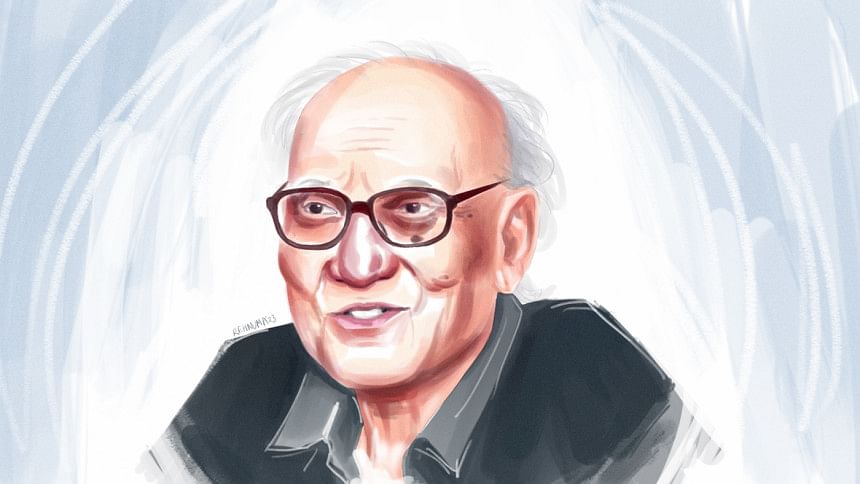
Professor Nurul Islam is no longer with us, but his lasting legacy will stay with us for generations. Among Bangladeshi professionals, he was an iconic economist who inspired a whole generation of top Bangladeshi university students to take up economics as a profession. That legacy has produced a bevy of outstanding economists over the past three decades. He lived a full life, steering through extraordinary times while leaving a chequered professional career behind. Yet, he once professed he was only an economist by accident.
His death, at the ripe old age of 94, comes as a personal shock to me as we maintained close contact over email and phone over the past two decades. It was clear he missed his native land. Even more, I think he missed contributing – with his ideas and the wealth of experience he had accumulated over the years – to a Bangladeshi economy which has been recognised as a success case of development, particularly during the past decade. After all, the first bricks of this economy's foundations were laid under his leadership as deputy chairman (with rank of Cabinet Minister) of the newly anointed Bangladesh Planning Commission very shortly after independence. Nurul Islam's professional peers acclaimed him as a leading development economist. And, quite appropriately, Bangabandhu gave him the role of being the first economic architect of Bangladesh's development journey. Even before this assignment and leading up to the March 1971 crackdown, he became a close economic advisor to Bangabandhu, responsible for giving strategic economic formulation to the Six-Point Programme so that it could no longer be wished away as populist rhetoric. For the rigour he brought to the analytical content of the Six Points and subsequent policy challenges in advising a de facto government prior to March 1971, Professor Rehman Sobhan (in Nurul Islam: The Economist as Freedom Fighter) adorns him with the credential of a "freedom fighter."
He was the first person from our part of the world to graduate in economics from Harvard University. On completing his PhD in 1955, Nurul Islam opted to return to Dhaka University to take up a teaching position as reader/associate professor in the Economics department, though he had a standing offer to join the International Monetary Fund for a career that would have "made him wealthier and perhaps a better economist", as he stated candidly in his memoirs. That career decision remains a testament to his commitment to his country.
Nurul Islam's passing draws a curtain on the life and times of a distinguished Bangladeshi economist who was instrumental in providing the economic rationale for the "two economies" principle that eventually became the backbone of our independence struggle. At the time, he was the one Bangladeshi economist who could provide the kind of analytical rigour to the evolving nature of economic disparity – through his writing and arguments in governmental dialogues – that would be difficult to ignore for the powers that be. To neutralise an irritant professor, as he himself surmised in his book An Odyssey: The Journey of My Life, he was appointed by the then Pakistan government as the first director of the newly formed Pakistan Institute of Development Economics (PIDE), the precursor to the Bangladesh Institute of Development Studies (BIDS). The stint at PIDE gave Nurul Islam the time and scope for engaging in research (often considered controversial by authorities) and sharpening his skills while interacting with mainstream economists from leading institutions around the world. It must be recognised that, under his stewardship, the PIDE rose to become the leading institute of development economics in South Asia. His stint there would conclude in tumultuous times as he was instrumental in shifting the headquarter of PIDE to Dhaka in 1969.
To be sure, posterity will still judge him as the architect of Bangladesh's initial strategy of economic development: first, in recovering from the devastation left from the war of independence; and then giving the economy the direction to grow out of poverty at a rapid rate. With respect to the first, the economy did recover somewhat with ad hoc measures and policies to tide over the trauma that a bloody independence struggle had left behind. Policy choices about the role of state and market, aid dependence versus self-reliance, open trade or closed economy approach – these choices were made in the first days and months, with immediate solutions in mind. It was in the longer-term approach to growth and poverty reduction that required policy choices under the guidance and direction of the planners in the BPC.
Nurul Islam's notable contribution of the time was to induct Bangladesh as an LDC in the UN system in 1975 while he was a member of the UN Committee for Development Policy. It was this strategic move that gave the Bangladesh economy duty-free access to a sizable portion of the global marketplace to exploit its comparative advantage in labour-intensive apparel production. The rest is history.
In 1975, Professor Islam left the BPC for a research stint at Oxford University. In 1977, he moved on to become the highest ranking Bangladeshi in the UN system at the time, as assistant director-general at the Food and Agriculture Organization (FAO) in Rome, a tenure that lasted for 10 years. His next career move was in the US as senior policy advisor at the International Food Policy Research Institute (IFPRI) in Washington. Far removed from administrative responsibilities, this assignment gave him the time and scope needed to put some of his thoughts and ideas – that lay dormant for many years – into research output.
But one suspects that these were also his twilight years after a long career filled with stress and strains of intense professional activity. During this stint at the IFPRI, and subsequently as an IFPRI Research Fellow Emeritus (a retirement designation), he became prolific in producing research papers and publications based on piles of records of events and notes that he diligently preserved so that later generations of economists and social scientists could benefit from them. I had the privilege of reading all his publications, which always contained three distinctive traits: first, there were detailed record of events of historical importance; second, his role, contribution, and interactions with personalities were clarified to allay doubts and remove any misperception; and third, his analytical mind offered sharp takeaways for historical record.
By dint of his record of research and engagement in actual policy formulation and implementation in a developing country like Bangladesh, as well as in an international institution involved in building food security and poverty reduction, Dr Nurul Islam devoted his life to being a practical (not just theoretical) development economist. The legacy of scholarship and development experience he left behind will be challenging for anyone from our generation to match.
Dr Zaidi Sattar is chairman of Policy Research Institute of Bangladesh (PRI).
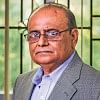
 For all latest news, follow The Daily Star's Google News channel.
For all latest news, follow The Daily Star's Google News channel. 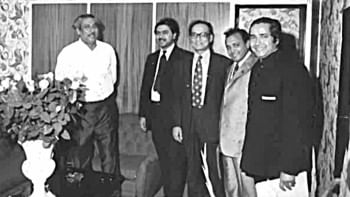



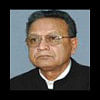


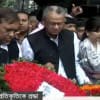


Comments